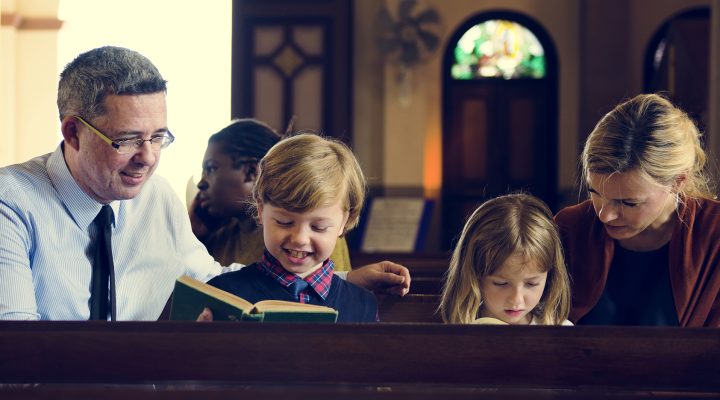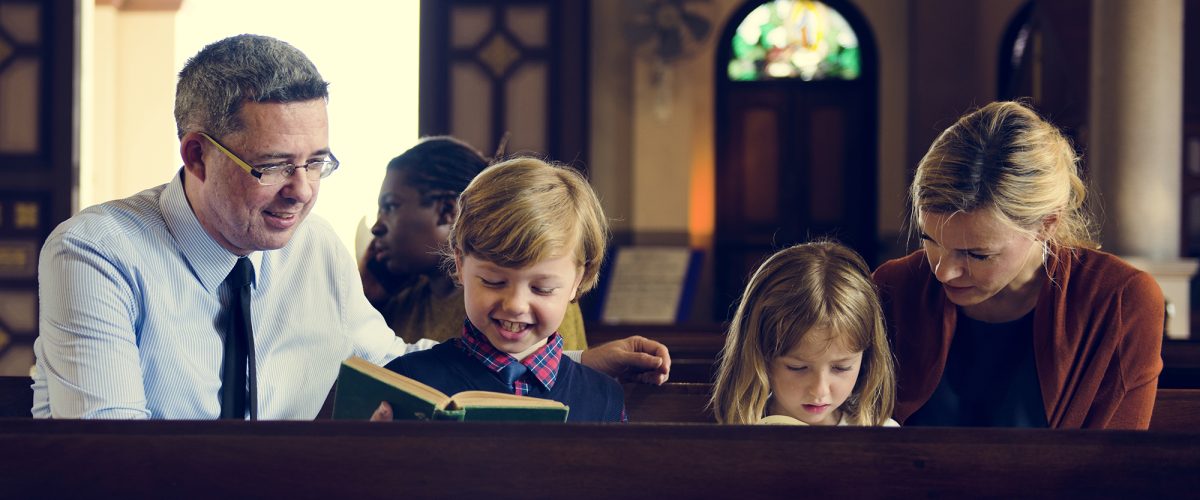Children being raised in America today attend church far less frequently than their parents and grandparents did, largely because their parents have stopped attending as adults.
Gallup reports that more than a third of American adults have fallen away from attending religious services regularly in their lifetime and that a majority of Americans (58%) now attend church seldom or never.
While shifts in church attendance patterns have been decades in the making, the current generational shift from parents to children represents a significant downturn, according to Gallup’s data.
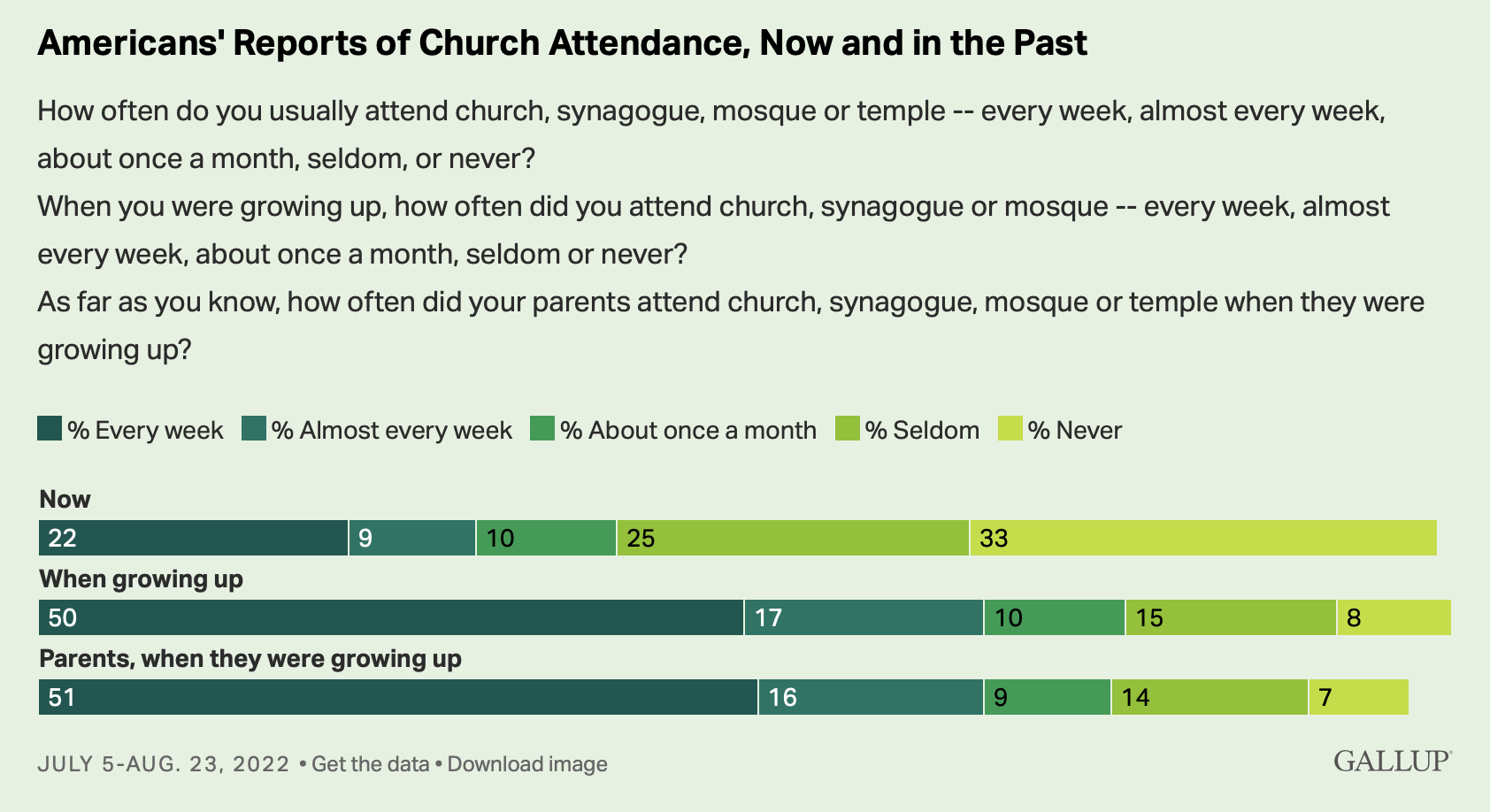
While only 31% of adults report attending a church, synagogue, mosque or temple weekly or nearly weekly today, more than double that number (67%) say they attended that regularly when growing up. A similar two-thirds told Gallup that, to the best of their knowledge, their parents attended weekly or nearly weekly in their youth.
A Gallup news release summarizes: “The changes in church attendance have occurred within the current generation of parents and children.”
As for the non-attenders, that group breaks into 25% who say they seldom attend and 33% who say they never attend.
Only 9% of Americans say they attend nearly every week.
“The results suggest adults’ experience as children was similar to that of their parents, but today’s adults have very different religious habits,” the Gallup release noted. “Among adults who have children under 18, 31% regularly attend, providing an indication of the frequency with which today’s children attend — far less than children from the prior two generations.”
These findings correlate with polling by Gallup and other organizations on religious identification and church membership. For example, in 2022, an average of 21% of U.S. adults told Gallup they have no religious preference, up from 8% in 2000. And for the first time in modern history, more Americans reported they are not members of a community of faith than are.
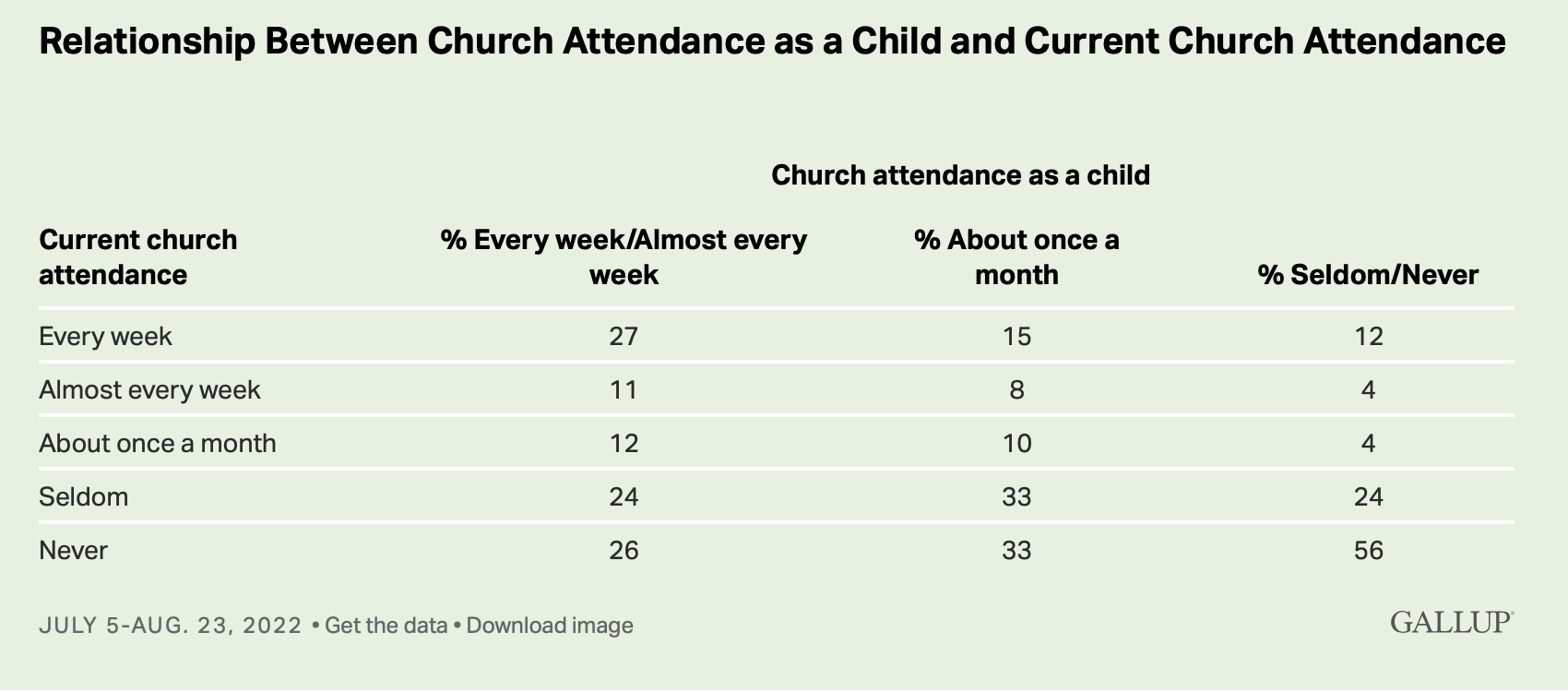
However, today’s parents who attended church as children are more likely than others to take their children to church today.
Gallup found 38% of U.S. adults who say they attended every week or almost every week as children now say they attend weekly or nearly weekly now. But many more in this group say they seldom (24%) or never (26%) attend religious services today.
The 38% current weekly attendance among former frequent churchgoers is higher than the 23% current regular attendance of those who attended church once or twice a month as children, and the 16% for those who seldom or never attended as children.
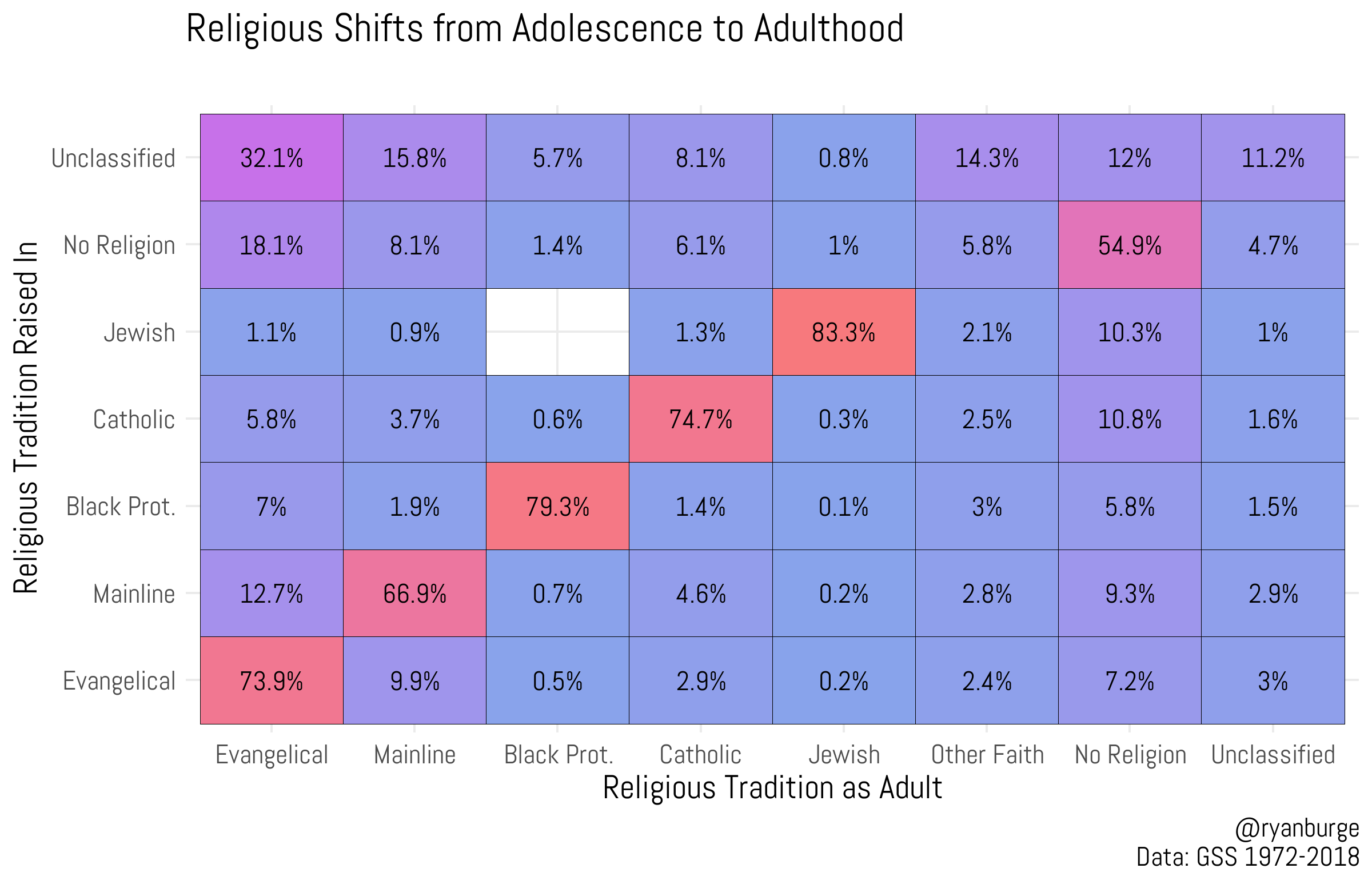 The latest Gallup data provide an interesting layer to previous research by Ryan Burge of Eastern Illinois University and one of the foremost authorities on the religious “nones.” He has been tracking shift between Christian faith traditions as today’s adults settle into new faith practices that sometime are different from where they were raised.
The latest Gallup data provide an interesting layer to previous research by Ryan Burge of Eastern Illinois University and one of the foremost authorities on the religious “nones.” He has been tracking shift between Christian faith traditions as today’s adults settle into new faith practices that sometime are different from where they were raised.
For example, he found:
- Nearly 85% of people raised evangelical stayed Protestant as adults but only 74% stay evangelical. For those evangelicals who remain in church but leave evangelicalism, the most common place to land is a mainline church.
- About two-thirds (66%) 0% of those raised mainline Protestant stayed mainline as adults, and those who leave mainline churches are most likely to end up in evangelical church if in any church at all.
- Three-fourths of Catholics stayed Catholic, while nearly 10% become Protestant.
- About 32% of people raised a “none” adopt a Christian tradition as an adult but 55% stay none.
Burge’s data concern religious identification, not church attendance. One thing that has not changed is more Americans claim a religious identification than actually attend religious services.
Related articles:
Pandemic opens the door to a far-flung notion of church membership
Less than half of Americans now claim a formal congregational membership
Younger and older Americans aren’t returning to church as much as the middle-aged

